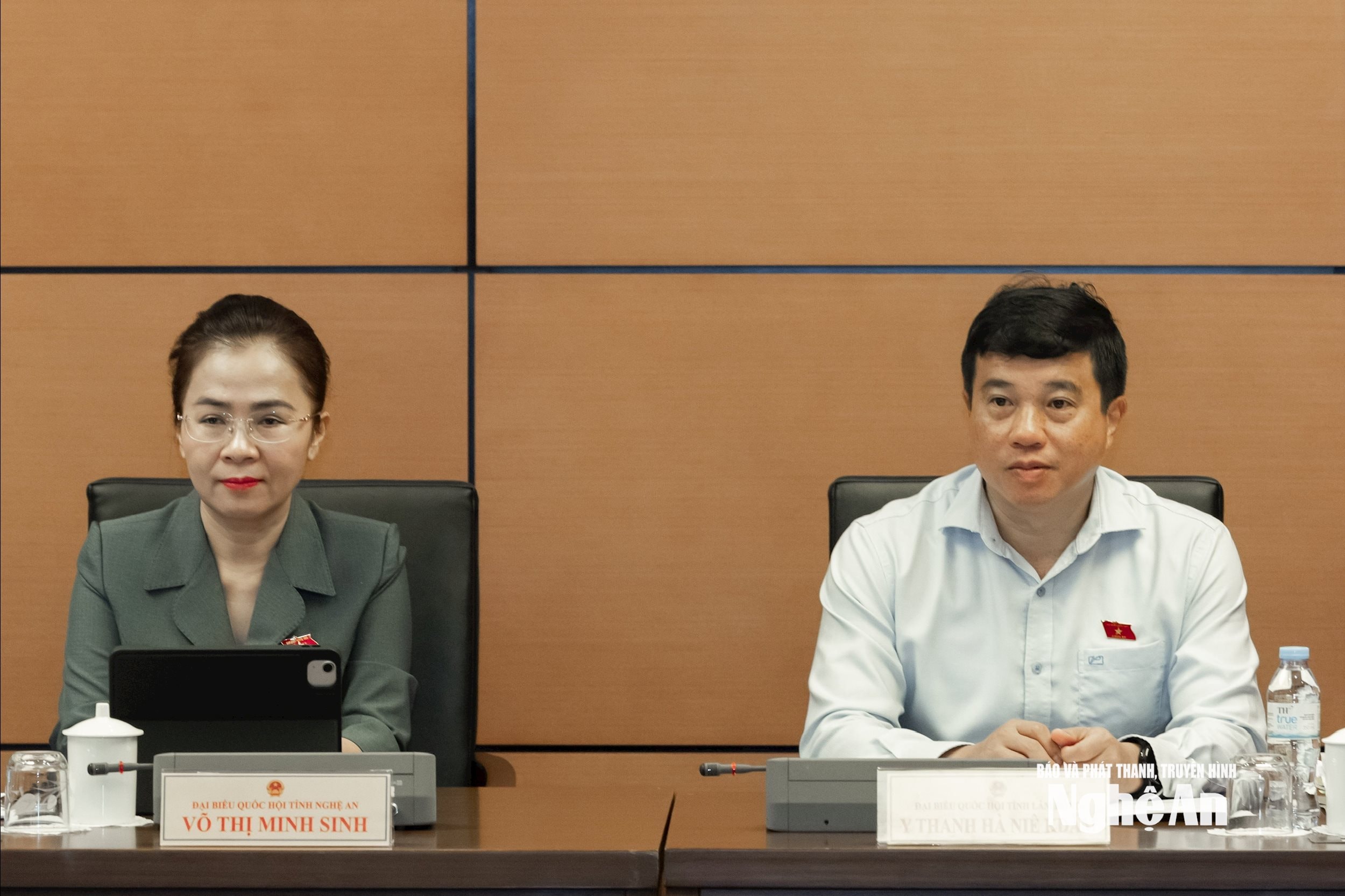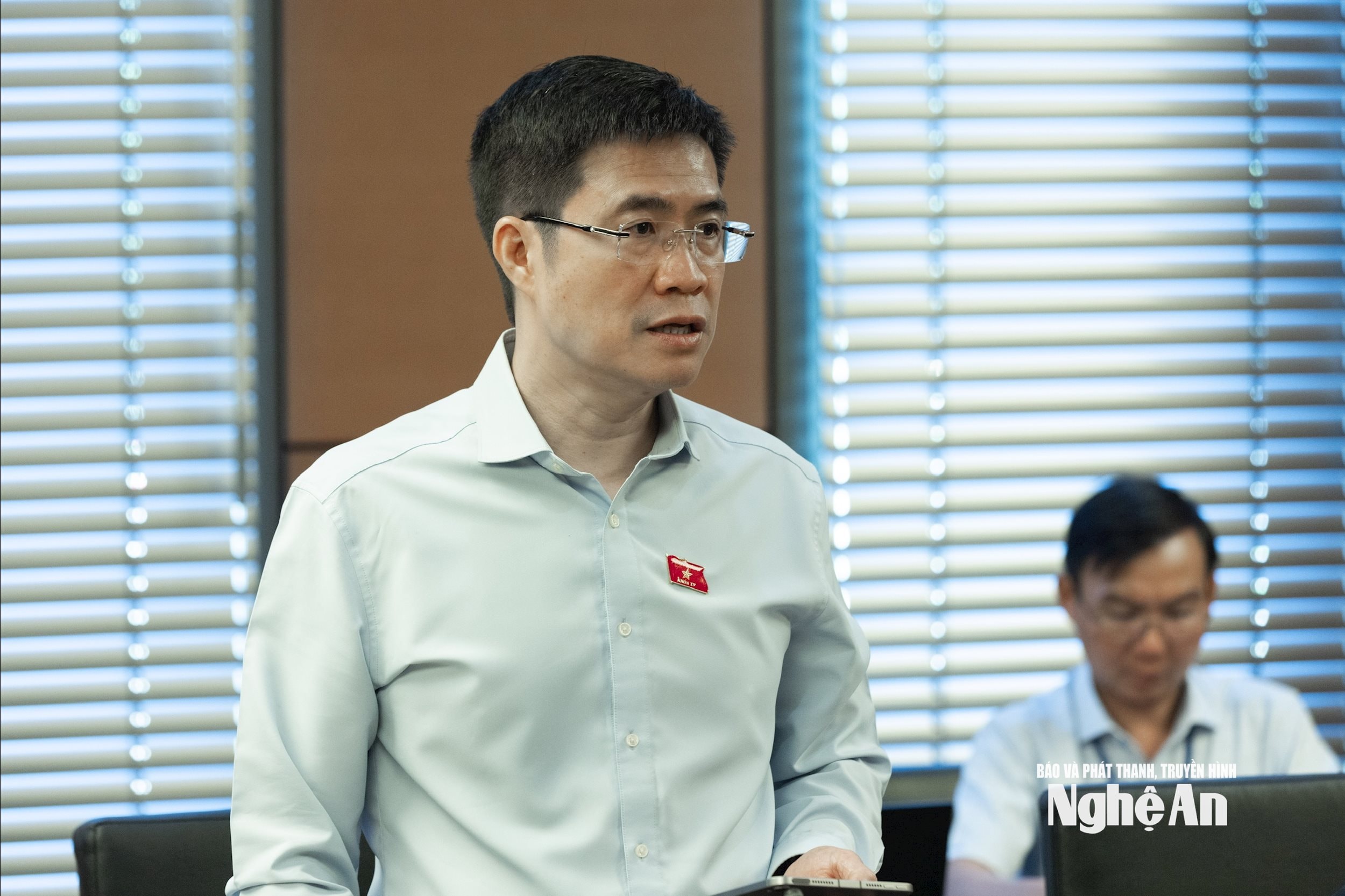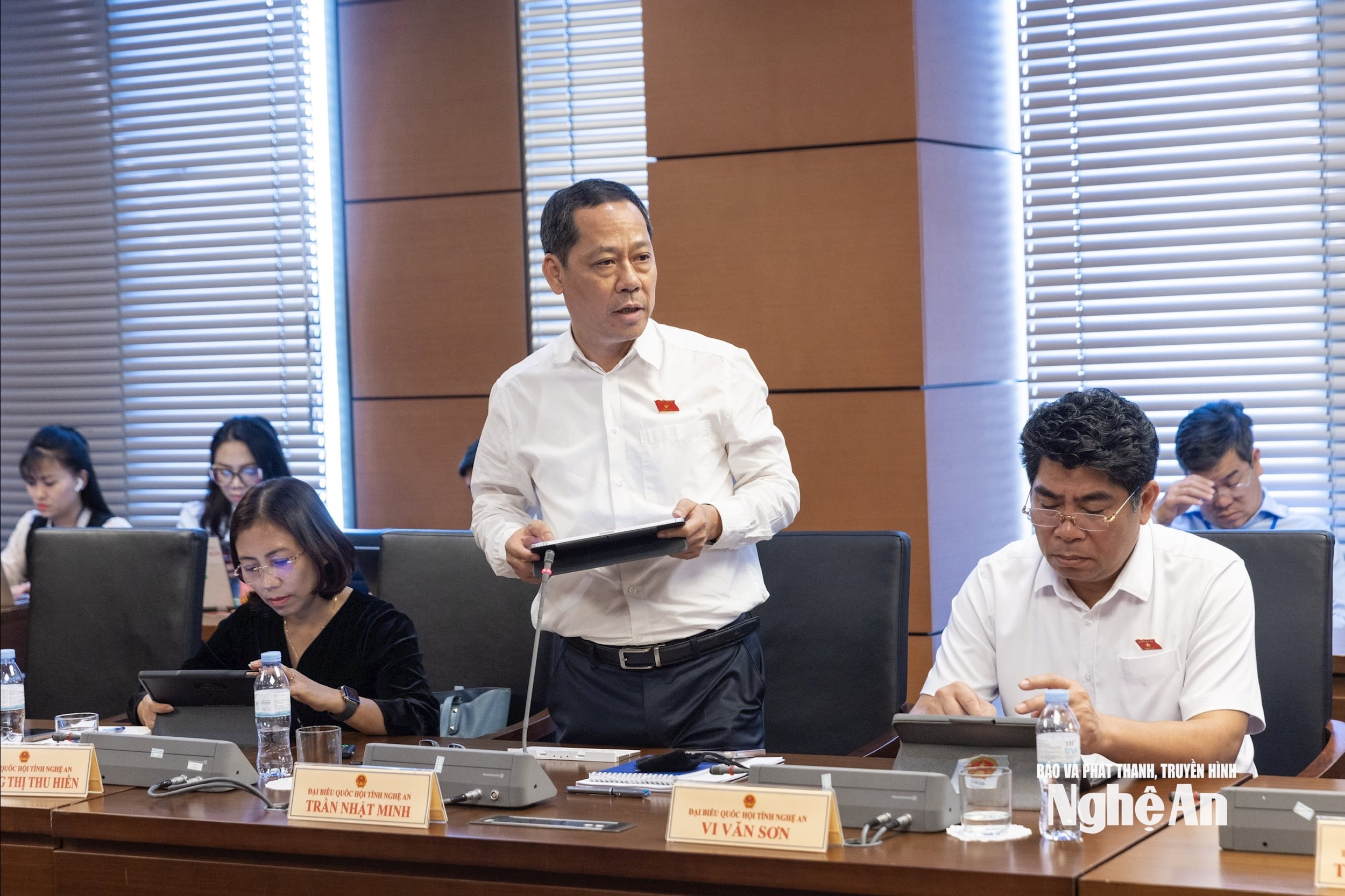National Assembly delegates from Nghe An province proposed to study increasing the maximum speed on the North-South expressway in low traffic sections with sufficient safety conditions.
This is one of the opinions of Mr. Hoang Minh Hieu - Standing Member of the National Assembly's Committee on Law and Justice, delegate of Nghe An delegation in the group discussion session.

On the morning of October 21, continuing the 10th Session, the 15th National Assembly discussed in Groups. The National Assembly delegation of Nghe An province discussed in Group 7 with the delegation of Lam Dong province.
Proposed solutions to reduce logistics costs
At the discussion session, many National Assembly deputies expressed their agreement with the Government's report and contributed many practical ideas to improve policy implementation efficiency and move towards sustainable development.
Delegate Hoang Minh Hieu - Standing Member of the National Assembly's Committee on Law and Justice assessed that the Government's report showed many bright spots, in which the most prominent were the results of infrastructure development.
The completion of the target of 3,000km of expressway by the end of 2025, along with the acceleration of many key projects, demonstrates the Government's great efforts in implementing public investment commitments.

However, delegates noted a notable paradox: Despite large infrastructure investments, Vietnam's logistics costs remain high, accounting for about 17% of GDP, while the global average is only 10-11%, and the ASEAN-4 group is 12-13%. The main reason is that freight transport still depends up to 70% on roads; infrastructure connecting different types of transport is still weak; many traffic congestion points exist for a long time.
To invest in infrastructure more effectively, Mr. Hoang Minh Hieu proposed three specific groups of solutions. First of all, in the process of amending the Planning Law, it is necessary to unify the planning of transport infrastructure in a comprehensive direction, connecting roads, railways, aviation, and waterways, instead of separating each field as it is now.
In addition, in allocating public investment capital, the delegate from Nghe An suggested prioritizing areas with high traffic volume and large socio-economic impacts such as Ho Chi Minh City, where infrastructure around seaports and airports is often overloaded.
Regarding the Eastern North-South Expressway, delegates proposed that the Government study and allow increased traffic speed to improve operational efficiency on sections with low traffic volume and adequate safety conditions.
According to delegates, this is one of the important solutions to reduce logistics costs, promote socio-economic development and maximize the value of investment in transport infrastructure. Currently, the speed limit of 90 km/h on many routes is not commensurate with the quality of infrastructure and actual vehicle density.
Citing data, it is shown that the rate of traffic accidents on expressways currently accounts for only 0.78%, the lowest among all types of transport. Therefore, considering increasing operating speed at low-traffic sections is considered feasible, safe and necessary to make the most of the operating capacity of the national expressway network.
Regarding the socio-cultural field, delegate Hoang Minh Hieu raised concerns about the abuse of social networks among young people. He cited research showing that Vietnamese people use social networks on average more than 3 hours a day, with children and teenagers spending up to 4 hours. Exposure to online content too early and without control is seriously affecting children's mental health, physical health and communication ability. Many heartbreaking cases have shown this negative impact.
He said that many countries have taken strong measures to protect children: Australia prohibits children under 16 from using social networks; France and Denmark restrict children under 15; China stipulates that children under 18 can only use the Internet for less than 2 hours per day. From that experience, the delegate suggested that the Government study and develop a legal mechanism and specific sanctions to control and protect children's mental health in cyberspace, while enhancing education on safe digital skills in schools and communities.
Timely revision and supplementation of the Disaster Prevention and Control Strategy
Mr. Tran Nhat Minh - full-time National Assembly member of Nghe An Delegation also spoke, expressing his agreement with the report of the Government and the inspection agencies, and at the same time focusing on proposing solutions on natural disaster prevention and control and climate change adaptation, a hot issue of 2025.
According to him, 2025 will be a year of extreme weather, with 9 major storms, of which storms No. 10 and No. 11 will cause serious flooding in the Central and Northern regions. Nghe An is one of the localities that suffered heavy damage.
The Government and the Prime Minister responded quickly, issuing consecutive dispatches, establishing special task forces, mobilizing thousands of officers and soldiers to participate in rescue, and providing emergency support of more than 3,200 billion VND to 15 localities. Relief work, ensuring food, clean water, and medicine were deployed promptly, clearly demonstrating the spirit of "leaving no one behind".

However, the delegate from Nghe An said that disaster prevention work still faces three major challenges: Many areas do not have access to early warning systems; lack of financial resources while Vietnam needs to invest at least 3-5 billion USD each year to improve its resilience to natural disasters, but the current budget can only meet about 40%.
The construction of too many structures in areas at high risk of landslides without appropriate protection measures makes the damage when natural disasters occur more serious. At the same time, deforestation, especially in mountainous areas, removes natural barriers, increasing the risk of flash floods and landslides.
From that reality, delegate Tran Nhat Minh suggested that the Government promptly review and summarize the results of the implementation of the Strategy for Natural Disaster Prevention and Control to 2030, with a vision to 2050, to promptly amend and supplement appropriate goals and solutions in the new situation; especially in accordance with the new State apparatus organization.
The Government directed the early implementation of the development of a map of risk zones due to large-scale landslides and flash floods according to Decision No. 1262/QD-TTg of the Prime Minister approving the Project on Early Warning of Landslides and Flash Floods in the Mountainous and Midland Areas of Vietnam; at the same time, directed localities to coordinate with relevant ministries and branches to plan safe residential areas, build works in the area associated with natural disaster prevention work, and shelter works to ensure safety for people during the rainy and stormy season.
Mr. Tran Nhat Minh also proposed to invest in completing the monitoring system for flash floods, landslides in areas at high risk; at the same time, supplement the budget for projects to upgrade the dyke system, reservoirs and flood drainage works; especially, it is necessary to direct the review of key infrastructure and traffic connections in mountainous areas, remote areas damaged in the recent floods to soon have investment plans in isolated areas.
And finally, according to the delegate of Nghe An, there needs to be a solution to raise awareness and train disaster prevention skills for the community.
